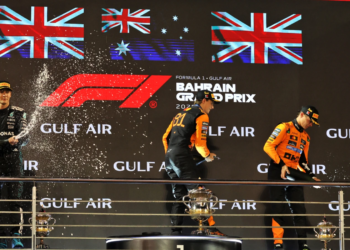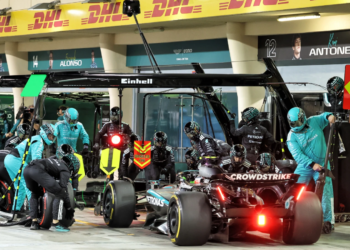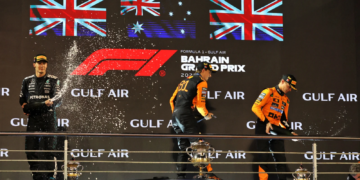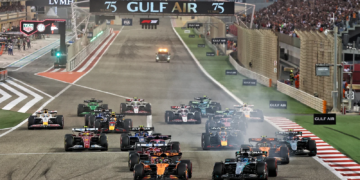Renault shutting down its Formula 1 engine programme at the end of 2025 signals the end of one of the most infamous downfalls in the sport’s history.
Failure is an inevitability in F1, and it is without question the biggest battle all teams and engine manufacturers must wage throughout their existence. Reliability concerns, a strategic error in the heat of a race, and more all catch the best minds in motorsport out at some point. If passionate and competitive, it will hurt badly.
Crucial to moving on from failure is the speed and accuracy of bouncing back, learning from the mistakes made to live and fight another day. All world champions and engine manufacturers do this, pushing the limits of what is possible technically to extract maximum performance, using lessons from losing competitive advantage.
But imagine a scenario where an engine manufacturer repeats the same mistakes repeatedly. Not just over a few years but for a decade while blaming others for its shortcomings.
Renault is not just guilty of this; it has now signed its own death warrant. Pre-2014, Renault was associated with championships, race wins, and iconic cars. Williams, Benetton, its own title-winning team in the early 2000s, and Red Bull all owe their success to this iconic brand. Yet the car giant is about to throw away over 60 years of legacy willingly. Countless world championships and race wins as a manufacturer and supplier over its frustration that it cannot turn around its fortunes at refining its underperforming F1 power unit without investment.
The irony of the debacle is Renault pushed for the introduction of the power units, even stating that its future involvement in F1 depended on them. That claim has aged badly as milk left out in the summer heat on a beach on the French Riviera.
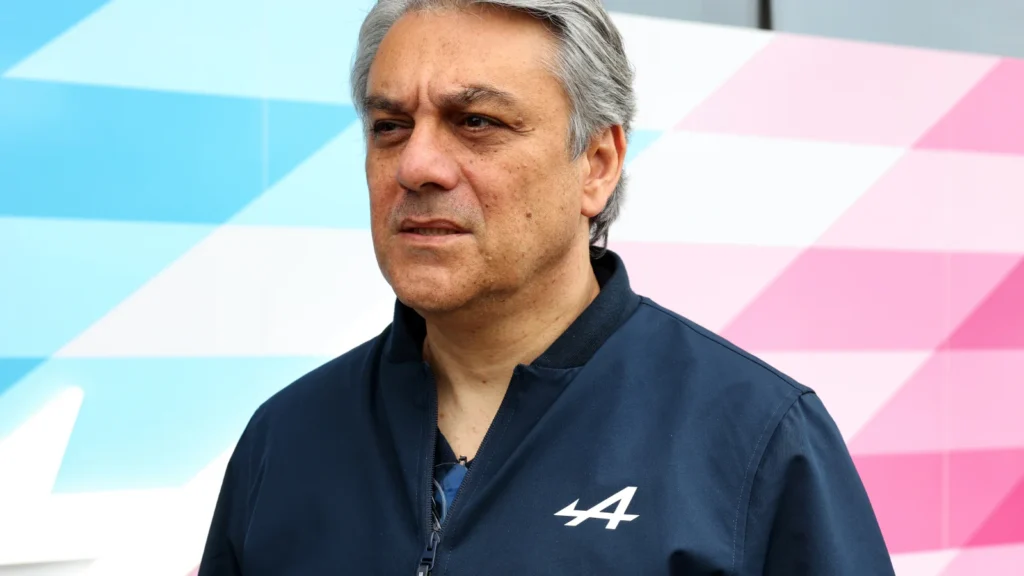
Pulling the plug on a modern disaster of corporate interference
Watching Renault since introducing the turbo hybrid power units in 2014 has been a painful experience for fans and pundits alike. The results are well documented. A disastrous first year in 2014 saw Red Bull lose the Constructors’ title due to poor reliability. Toro Rosso (now RB), Caterham, and Lotus all saw dramatic drop-offs in performance.
The power unit regulations remained stable for several years after their introduction, mainly due to Honda’s arrival in 2015 with McLaren. However, Renault did not take advantage of this; instead, it invested in buying Lotus ahead of the 2016 season.
Renault has existed as a works team several times in the last 20 years, but its final iteration is one of the worst examples of corporate interference in modern times.
From the start of its journey, unrealistic timelines were flaunted, such as the five-year plan for achieving title wins from its inception. This was Renault’s first mistake. Given Lotus’s underfunded state, race wins, let alone title wins, could never be a short—to medium-term goal.
Enstone needed significant investment, and the Viry-Châtillon engine facility was required to build more powerful power units and integrate with its British base.
F1 teams like stability in the face of constant change. While an enigma, it is no surprise that Red Bull, McLaren, and Mercedes enjoy success, given the longevity of their team principals and well-established management structures. Renault seemed to miss this memo. Instead, a revolving door of management has plagued the team since 2016.
Ferrari’s Fred Vasseur became the first leader to jump ship, citing disagreements over the team’s direction. More followed, including the infamous departure of Special Advisor Alain Prost over disagreements with previous Alpine CEO Laurent Rossi. Since 2016, the team has hired and fired a staggering four team principals and its long-standing Sporting Director of over 30 years. More bluntly, no senior staff member lasted more than 18 months in post.
The instability affected driver signings, with star acquisition Daniel Ricciardo abandoning ship a year after signing upon realising the gravity of the situation at the ailing motoring giant.
Hiring and firing on this scale lowers morale and destroys any hope of stability. Team Enstone’s issues can be traced back to its President and CEO.
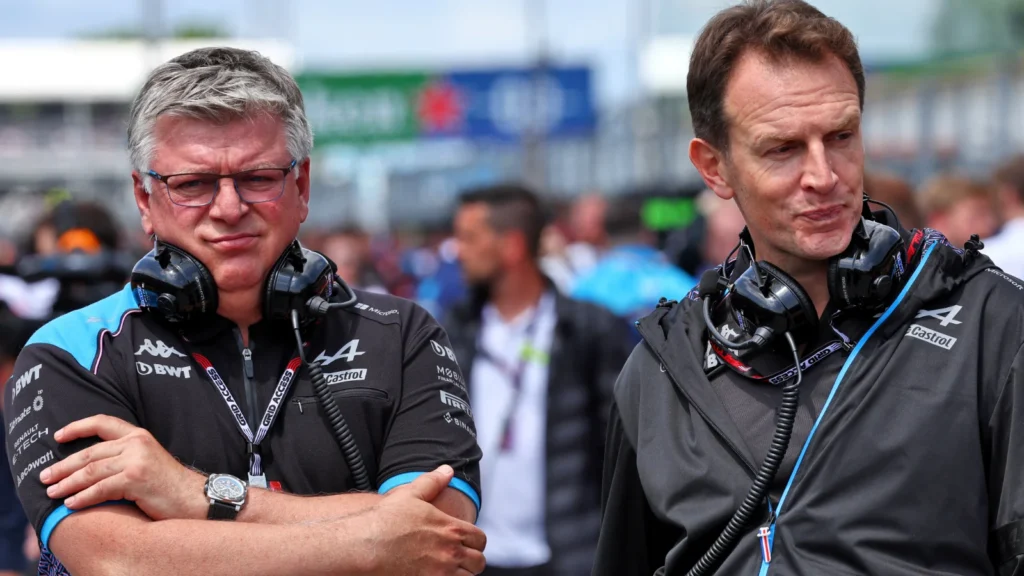
A tale of apathy and refusal to adapt or listen
Renault Group President Luca de Meo’s apathy towards the F1 operation has led to the death of one of F1’s once mighty superpowers.
His decision to rebrand the team to Alpine in 2021 was straight out of the corporate playbook. De Meo hoped results would magically appear by removing all traces of the team’s former identity. Looking back at the annals of history, Toyota’s ill-fated story in F1 rears its head.
The Japanese car giant refused to adapt its corporate philosophy to the fast-paced world of F1. Again, apathy played a part. Taking bizarre decisions like switching from Michelin to Bridgestone tyres to better align with the company, its team bowed out of the sport at the end of 2009 with no wins, one of F1’s most expensive failures.
Fast forward to 2024, and history repeats itself, with a corporate giant interfering in the quest for speed. Renault’s hopes of shaking off years of average performance would never come to fruition, as it takes more than a refreshed paint job to succeed in F1. Team members know this, and all have met a brick wall when attempting to raise concerns. Or, as was the case of ex-Alpine CEO Laurent Rossi in 2023, a public mauling, such as the scathing attack he launched on the team after a perceived lack of results.
Teams should be protected from this kind of corporate action, but Renault’s management seems content with airing their dirty linen in public. Preferring to swing the axe rather than let management do its job, Team Principal Otmar Szafnauer was fired later in the run-up to the 2023 Belgian Grand Prix. He cited disagreements over the team’s direction as a reason his time at Alpine did not work out. After nearly a year in the role, De Meo caused yet more instability with this incomprehensible decision.
Alpine created an “interim” role for Szafnauer’s replacement Bruno Famin that lasted until 2024 when Oliver Oakes took over. Ironically, Rossi became victim to the same axe just days before Szafnauer, who was moved to run “special projects” within the wider Renault group.
The lack of explanation regarding Rossi’s departure conjured images of a rushed sales pitch glossing over major details. F1 and the media were expected to fill in the gaps of another badly handled incident. This kind of dysfunction starts at the top. De Meo’s multiple admissions that Renault is only in F1 because his marketing team says the manufacturer should be spoke volumes about his faith in his F1 operation and priorities.
Far from a vote of confidence in its F1 team, he has refused to give the team the tools needed to improve. All departed management had the same message: you need more understanding. A quote from an early 2000s Star Wars game perfectly captures his impact and legacy on Enstone: “It is such a quiet thing, to fall. But far worse is to admit it”.
De Meo will never admit to causing the team to fall into obscurity. His apathy towards a billion-dollar operation prevents that.
Enstone itself craves success and returning to winning ways. Despite Esteban Ocon’s 2021 win in Hungary, the team has lacked competitiveness since Kimi Raikkonen left in 2013.
The British-based team has the drive, the means and the personnel to win again. But under De Meo, Alpine is a shadow of its former self. Under his ownership, mediocrity is the maximum achievable. Selling stakes to famous faces like Ryan Reynolds is excellent PR but does not drive engineering innovation. De Meo’s inability to learn from many years of failure or to deviate from a corporate approach has now buried the manufacturer.
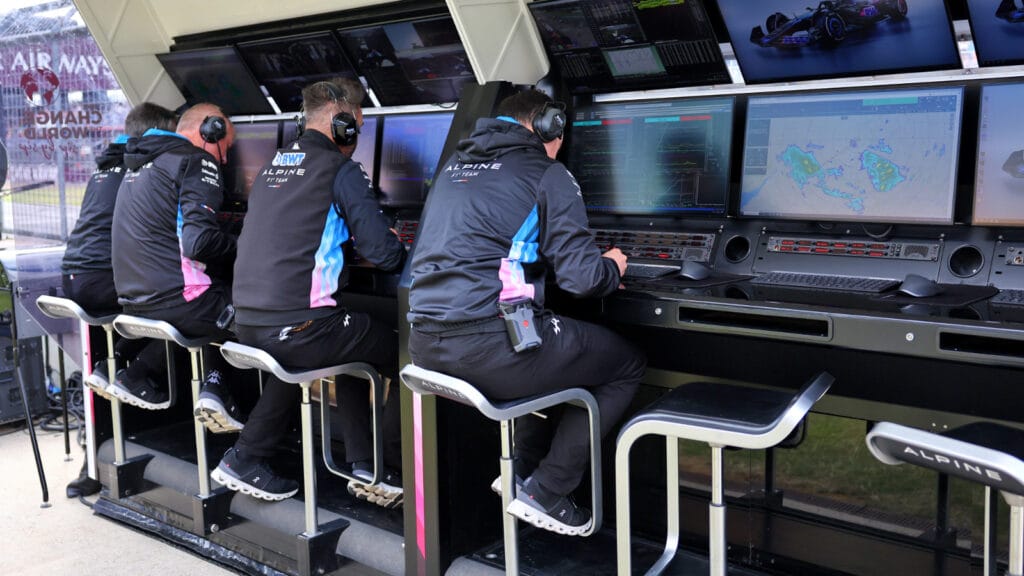
Can Renault return to F1 if it performs a U-turn?
Given the immensely complex nature of the V6 turbo hybrids, Renault’s dismantling of its programme makes it highly unlikely that it will return to motorsport’s top flight. While the “F1 monitoring station” will keep an eye on F1 operations, the investment required will likely not appeal to Renault in the future. A finality accompanies this decision.
We are left with the utterly ridiculous situation of a works team moving to customer status due to a CEO continuing to chase results by quick and easy means.
The anticipated move to Mercedes power will give Team Enstone more speed in the short term, given its rival’s stronger power output, but this is pointless without team investment. Like the glossy rebrand and new paint job, switching to Mercedes power will not solve De Meo’s and Renault’s problems.
Enstone must be left alone and free from constant management changes and entirely unrealistic five-year plans and initiatives. Rumours continue to swirl that Renault is looking to sell its F1 team. Shutting down its power unit division is the first step in that process, much to public dismay of the excellent engineers in France.
For the sake of the amazing men and women at Enstone, it is time the French car giant cut the cord. It clearly does not value its F1 programme, and many others want a bite at the F1 cherry.
Forcing a sale of the team will drive down its value; it is now simply a question of who will approach it with the right price. When this happens, Renault, as an F1 entity, will die for good.
Fans will remember the Renault of old: iconic sounds, liveries and world champions powered by its engines. They will rapidly forget the existence of De Meo and his seemingly partly successful mission to kill off the iconic car brand in F1—Vive la Résistance.
READ MORE: Viry staff respond to Renault axing Alpine F1 engine project




